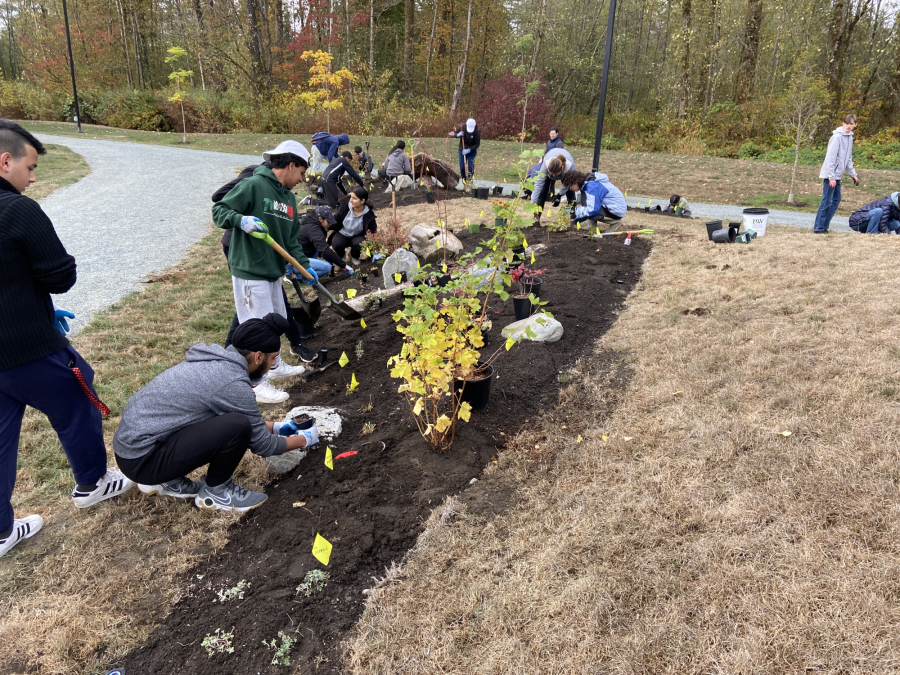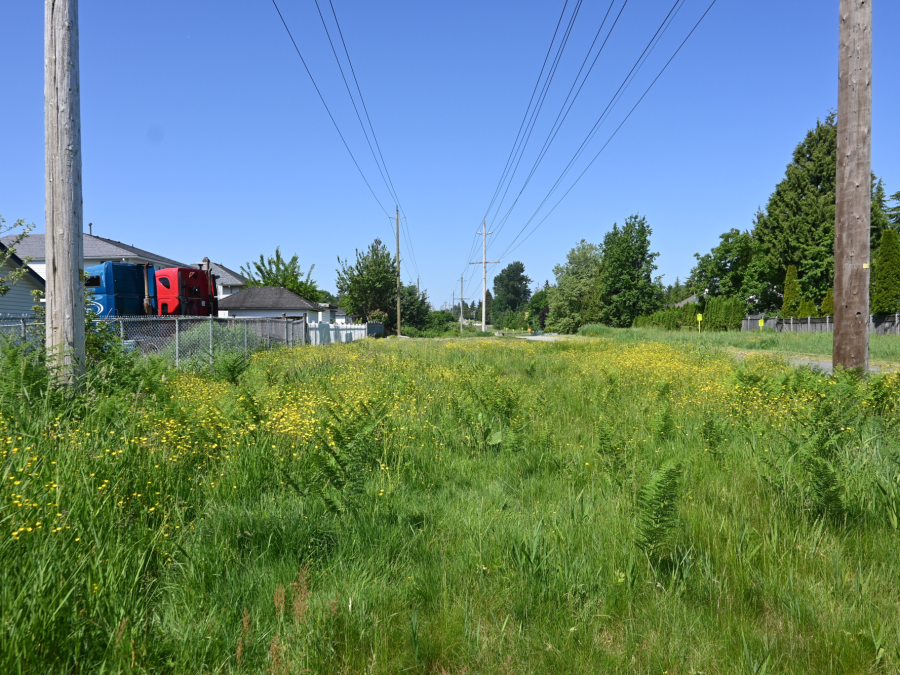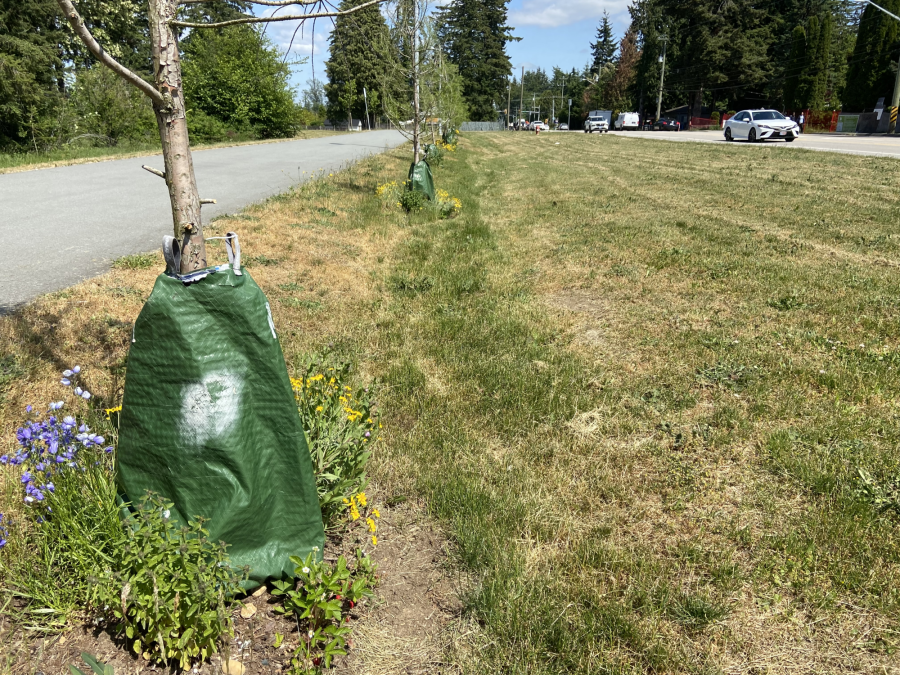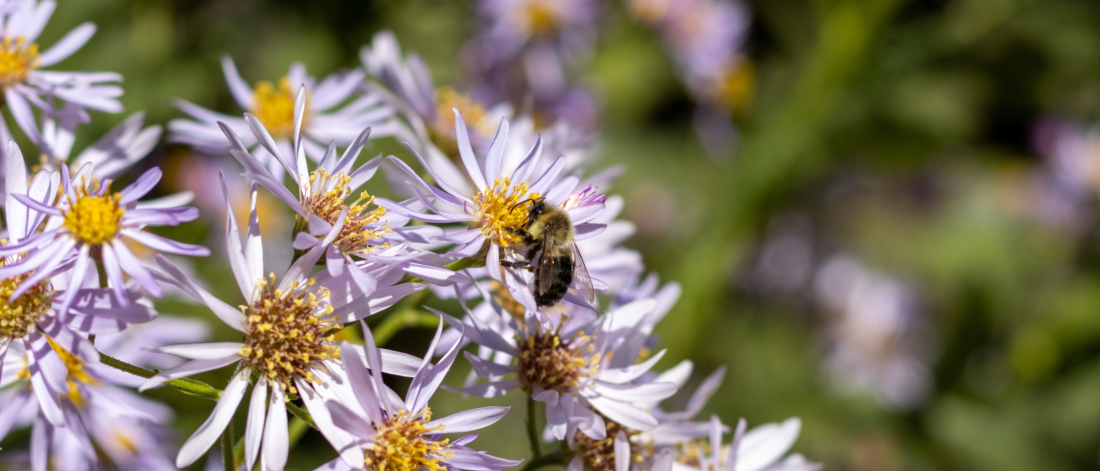
Pollinator Conservation
See how Surrey is preserving and enhancing pollinator habitat with community projects. Learn how you can make an impact for pollinators in your own lawn, garden, or patio.
Anything that can carry pollen on its body is a pollinator. This includes bees and wasps, but also:
- birds, bats & small mammals
- butterflies & moths
- flies & beetles
Taking care of pollinators is essential for our ecosystem to function.
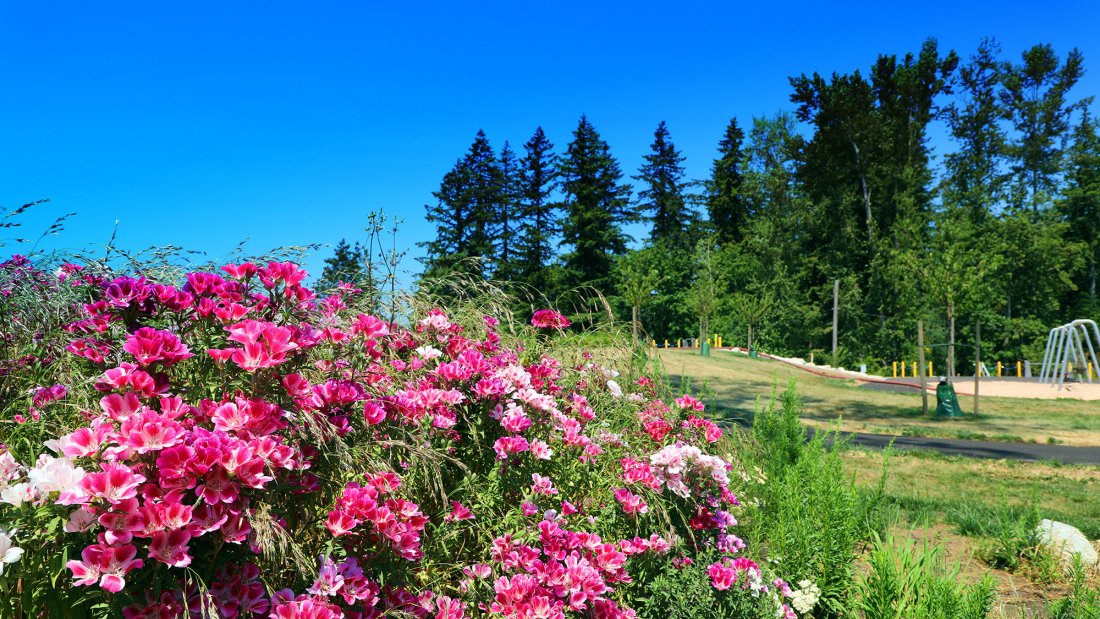
Pollinator meadow at Edgewood Park
Pollinator Projects
Learn about the various actions the City is taking to benefit pollinators.
New pollinator habitat areas
Edgewood Park
Edgewood Park includes a 330m2 pollinator meadow adjacent to a newly planted biodiversity corridor. The pollinator meadow is situated on a south-facing, sandy mound. Selected plant species mimic vegetation found on coastal sandy dunes.
The pollinator meadow is intended to be self-seeding once established; however, because planting is experimental the project will be monitored for several years to determine what establishes and to assess what adjustments may be required. In addition to pollinator plants, leaf litter from adjacent trees will be incorporated into the meadow to provide habitat cover for invertebrates during the winter.
Clayton Community Centre
Two styles of pollinator habitat were installed:
- Pollinator horticulture bed: Three beds were installed totaling an area of about 40m2. A selection of primarily native plants were selected based on their suitability for the site and based on providing blooms throughout spring and summer. Natural items including boulders and downed woody debris were also placed in the bed to support nesting habitat.
- Pollinator-friendly turf alternative: An area of about 65m2 was selected to trial an alternative to traditional grass lawns. A mixture of clover and low-growing wildflowers developed by West Coast Seeds was used to seed the area. It is intended to replace lawns in urban settings in order to reduce maintenance costs and increase habitat and forage for pollinators. This blend requires less water, less fertilizer, and less mowing than conventional lawn grasses.
With the help of community members, this site will continue to be monitored and maintained throughout the year.
Natural areas restoration
Surrey’s natural areas are critical to supporting biodiversity in the City. Along with our urban forests these areas support habitats such as wet meadows, grasslands, and shrub thickets. They provide food, nesting and cover for wildlife.
We restore these areas by:
- removing invasive plants
- planting native plants
- applying low or no-mow strategies
You'll find restoration sites in parks all across the city.
Honeybee Centre bee gardens
Mowing strategies
Low-mow zones
Surrey Parks is reducing its mowing frequency to once a year in several locations across the City’s Green Infrastructure Network to avoid disturbing habitat for ground nesting birds and pollinators over spring and summer.
You’ll see signage about low-mow zones in pilot locations like utility corridors and greenbelts.
No-mow zones
Some areas in parks will be left to grow naturally.
Examples: meadow at Redwood Park, Elgin Heritage Park.
Turf conversion
Many areas within our parks are highly-maintained turf grass. Park users enjoy these areas, but they provide little if any food and shelter for pollinators or other wildlife. Many are within or near biodiversity corridors or adjacent to natural areas within the City’s Green Infrastructure Network.
Staff are investigating new ways to increase biodiversity values in these zones through trials with turf alternatives (e.g., clover blends, “bee turf”). These seed blends combine native wildflowers and grasses that are drought-tolerant and can withstand periodic mowing. Example sites:
- Clayton Community Centre: adjacent to the community garden
- Darts Hill Garden Park
Native plantings in shade tree wells
Staff have planted a range of native flowering plants in shade tree wells to enhance pollinator resources in boulevards.
Surrey’s Natural Areas Partnership (SNAP) team monitors to see how they are being used by pollinators. Located along 24 Avenue at Orchard Grove Park.

A Painted lady butterfly on an Aster flower
Pollinator Steward Certification
Surrey’s pollinator conservation efforts have earned us “Pollinator Steward” certification through Pollinator Partnership Canada. This certification was earned through our continued investment in projects that have and continue to create essential habitat and features to support native pollinators across the City.
Examples of sites that have contributed to the certification include:
- Edgewood Park
- Godwin Farm Biodiversity Preserve Park
- Boulevard shade tree well native plantings at Orchard Grove Park
Challenges for Pollinators
About one third of our food production depends on pollinators. Unfortunately, pollinators face many problems including:
- habitat loss
- parasites & diseases
- pesticides
- climate change
Support Pollinators at Home
There are many ways you can attract and support pollinators in your yard, garden, or patio:
- Grow pollinator-friendly plants that will bloom throughout the season to provide food and nourishment. Plants can be grown in a garden bed, planter, or pots.
- When possible, choose plants that are native to BC.
- When buying plants, avoid plants that have been treated with pesticides (ask your garden centre) and avoid plants that are invasive to BC.
- Pollinators also need water. Add a shallow dish filled with rocks to your garden to allow them to land safely and rehydrate. Fill daily.
- Embrace some ‘wildness’ in your garden—rock piles, bare soil, old stems, and rotting wood can provide nesting and resting sites for many pollinators.
- For further ideas on enhancing your garden for pollinators and other wildlife, check out the City’s Biodiversity Design Guidelines.
